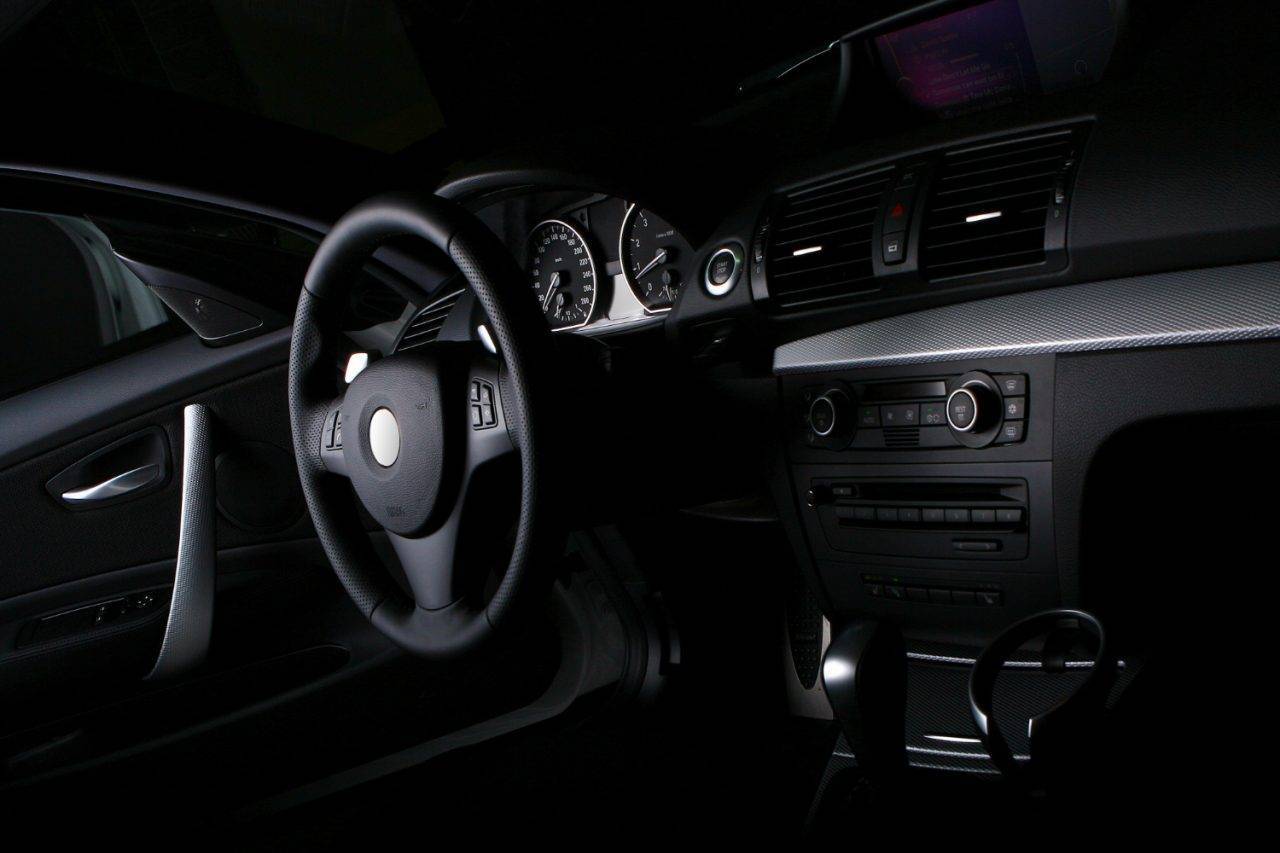Window tinting involves applying a thin layer of film to glass surfaces, such as those in vehicles, homes, and commercial buildings. This simple modification offers a variety of benefits, including enhanced privacy, improved comfort, protection from harmful UV rays, and better aesthetics. In this guide, we’ll explore everything you need to know about window tinting, including its advantages, types, legal considerations, and how to choose the best service.
What is Window Tinting?
Window tinting is the process of applying a film to glass windows to reduce the amount of light that passes through them. The film can be made from materials like polyester, metal, or ceramic, and comes in various shades and thicknesses. The film can also provide heat rejection, UV protection, and glare reduction, depending on the specific type used.
Window tinting is common in cars, where it helps keep the interior cool and protects against UV damage. It is also used in homes and businesses to improve energy efficiency, reduce glare, and provide privacy.
Benefits of Window Tinting
Window tinting offers numerous advantages, both in terms of comfort and safety. Here are the most significant benefits of getting your windows tinted:
1. Heat Reduction
One of the primary benefits of window tinting is its ability to reduce the amount of heat entering through the windows. Whether in a vehicle or a building, tinted windows can significantly lower the temperature inside, making the space more comfortable. This is especially useful in warmer climates or during the summer, as it can reduce the reliance on air conditioning, saving on energy costs.
2. UV Protection
UV rays from the sun can be harmful to the skin, leading to premature aging, sunburn, and even skin cancer. Window tints can block up to 99% of harmful UV radiation. This protection is especially beneficial in cars, where passengers are exposed to UV rays for extended periods. Additionally, the UV rays that cause furniture, carpets, and upholstery to fade can also be reduced with tinted windows, preserving the interior of your vehicle or building.
3. Glare Reduction
Glare from the sun or headlights can be an annoying and dangerous distraction, especially when driving. Tinted windows can reduce the glare, making driving more comfortable and safer. This also applies to homes and businesses, where glare from the sun can make it difficult to view screens or enjoy natural light. Tinted windows allow for better visibility while reducing eye strain.
4. Increased Privacy
Privacy is a significant reason many people opt for window tinting. Tinted windows make it more difficult for outsiders to see into your car or building, offering a sense of privacy. This is particularly beneficial for people who live in busy urban areas or in properties that are easily visible to passersby. In a car, tinted windows also help protect valuables from being seen by potential thieves.
5. Enhanced Security
Window tinting can add a layer of security to your car or building. If a window breaks, the film helps hold the glass together, making it more difficult for the glass to shatter completely. This can help protect against vandalism and break-ins. Additionally, security film can act as a deterrent for criminals, as it makes it harder to break into a property or vehicle.
6. Aesthetic Appeal
Tinted windows enhance the appearance of any vehicle or building. For cars, tinted windows create a sleek, uniform look, while also making the vehicle look more polished. In homes and commercial properties, tinted windows can provide a modern and sophisticated aesthetic that complements the design of the building.
7. Energy Efficiency
For buildings, window tinting can help improve energy efficiency. By reducing the amount of heat entering through windows, air conditioning systems don’t have to work as hard to maintain a comfortable indoor temperature. This can lead to lower energy bills, making it a smart investment for long-term savings. Similarly, in cars, tinted windows reduce the strain on air conditioning systems, helping them perform more efficiently.
Types of Window Tinting Films
There are several types of window tinting films, each offering different benefits depending on your needs. Here are the most common types of window tint:
1. Dyed Film
Dyed window films are one of the most affordable options available. The film is made with a layer of dye that is applied to the glass to block light and reduce glare. Dyed films provide a darker tint, but they don’t offer as much heat rejection as other types.
Pros:
- Affordable
- Reduces glare
- Provides privacy
Cons:
- Lower heat rejection
- May fade over time
2. Metalized Film
Metalized films use metallic particles embedded in the film to reflect light and heat away from the window. This type of film provides excellent heat rejection and durability, and it adds strength to the window, making it more resistant to breaking.
Pros:
- Superior heat rejection
- Durable
- Reflective appearance
Cons:
- Can interfere with electronics (e.g., GPS, radio, or mobile signals)
- More expensive than dyed films
3. Carbon Film
Carbon films use carbon particles to block out heat and UV rays. These films provide excellent heat rejection and maintain a non-reflective, matte finish. Carbon films are also durable and do not fade over time, making them a long-term investment.
Pros:
- Excellent heat rejection
- No fading over time
- Aesthetic matte finish
Cons:
- More expensive than dyed films
4. Ceramic Film
Ceramic films are the highest-performing option available. They use non-metallic ceramic particles to block heat, UV rays, and glare while offering clear visibility. Ceramic films are highly effective at rejecting heat and UV rays while maintaining high visibility and not interfering with electronic signals.
Pros:
- Best heat and UV rejection
- Does not interfere with electronics
- Long-lasting
Cons:
- Most expensive option
5. Hybrid Film
Hybrid films combine features of dyed and metalized films to provide a balance between performance and cost. These films offer good heat rejection and durability while still being more affordable than ceramic films.
Pros:
- Balanced performance
- Affordable compared to ceramic films
- Durable
Cons:
- Lower heat rejection compared to ceramic films
- May fade over time
Legal Considerations for Window Tinting
Before applying window tint, it’s important to be aware of the legal restrictions in your area, as many regions have laws that regulate how dark window tints can be, especially for vehicles. These laws are in place to ensure that drivers have sufficient visibility and that law enforcement officers can easily see inside vehicles.
For Vehicles:
- Front Windshield: In many regions, the front windshield must allow at least 75% of light to pass through, with the option for a tinted strip along the top.
- Front Side Windows: These usually must allow at least 35% light transmission.
- Rear Windows and Rear Windshield: These may be allowed to be darker, though the laws vary by region.
For Buildings:
- There are fewer restrictions on residential and commercial buildings, but safety regulations must be adhered to. Tinted windows should not obstruct visibility in case of an emergency, and certain film types may be prohibited in high-rise buildings due to building codes and fire safety.
Always check local regulations before tinting your windows to ensure compliance.
How to Choose a Window Tinting Service
When choosing a window tinting service, it’s important to consider a few key factors to ensure the job is done properly and meets your expectations:
- Experience and Reputation: Look for a service with experienced technicians who specialize in window tinting. Check reviews, ask for references, and review their portfolio of past work to gauge their quality.
- Quality of Materials: Ensure the tinting service uses high-quality materials. Premium films often come with warranties that guarantee their performance for years.
- Compliance with Laws: Make sure the tinting service is familiar with local tinting laws and can apply a tint that complies with regulations.
- Cost: While cheaper options may be tempting, it’s important to balance cost with quality. A good window tinting job should provide long-lasting results and superior performance.
- Warranty: Reputable tinting services often offer warranties for their work, which can be valuable if there are issues with peeling, bubbling, or fading.
Conclusion
Car Detailing is a worthwhile investment for enhancing comfort, privacy, and security in both your vehicle and home. With a variety of film types available, you can choose the one that best suits your needs and budget. From reducing heat and UV radiation to improving aesthetics and protecting your interior, window tinting offers a wide range of benefits. Just be sure to consider local laws and choose a reputable service provider to ensure that you get the best results.



